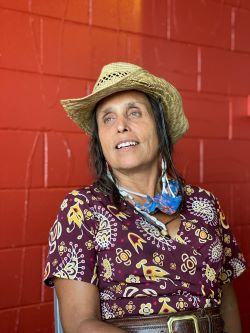funds will assist local nonprofits in providing emergency food and shelter
United Way in Central Oregon (UWCO) announces $162,000 in grants to seventeen nonprofits providing critical emergency food and shelter services in Deschutes County. These grants are created from funds delegated to the UWCO from Deschutes County’s Video Lottery Fund and the Federal Emergency Management Agency’s (FEMA) Emergency Food and Shelter Program (EFSP).
Responding to the acute and rising need for housing stabilization and emergency shelter services in the region, this year the EFSP Board prioritized a greater portion of available funds to organizations working to address and prevent houselessness. In recent years, the number of people experiencing homelessness went up 17% annually, and experts working in the sector anticipate that the rate has increased. These grant dollars will help ensure local organizations in Deschutes County can keep operations running to address this critical need.
Nicky Merrit, Executive Director at Central Oregon Villages commented: “We are honored to be a recipient of these funds. Partnering with the United Way to address the rising need for safe shelter for our unhoused neighbors means a great deal to us. We know the need is great for those living with shelter and food insecurity as well as the demands on service providers to help stand in the gap.”
In all, seventeen nonprofits providing emergency food and shelter services in Deschutes County received small grants ranging from $4,500 to $15,000. Grants were made in the following categories:
Shelter & Rent/Mortgage Assistance
Bethlehem Inn ($9,000)
Central Oregon Villages ($15,000)
J Bar J Youth Services ($14,000)
Saving Grace ($14,000),
Shepherds House ($14,000)
The Salvation Army ($14,000).
St. Vincent de Paul – Bend ($15,000)
St. Vincent de Paul – Redmond ($15,000)
Meals & Food Boxes
Central Oregon Veterans Outreach ($5,000)
Council on Aging of Central Oregon ($6,000)
Family Kitchen ($6,000)
Jericho Road ($5,900)
La Pine Community Kitchen ($5,000)
Nativity Lutheran Church ($6,500)
St. Vincent de Paul – La Pine ($6,000)
The Giving Plate ($4,500)
Clothing
Assistance League of Bend ($5,000)
For more than a decade, UWCO has convened an EFSP Board, annually, to establish funding priorities, reviews grant applications, and collectively determine how to award funds in Deschutes County. The EFSP Board includes representatives from its Board of Directors, Deschutes County, American Red Cross, Salvation Army, homeless service providers, faith community leaders, senior services, and healthcare.
“United Way has for many years played a role in bringing multiple perspectives to the table to make tough decisions. This process is no different. The need for emergency housing and food services in Deschutes County is great, and the local EFSP Board brings knowledge rooted in the community into the decision-making process. I am glad the United Way can be a conduit in investing these resources locally,” said Eli Ashley, UWCO Board Member and Chair of the EFSP Board.
About United Way of Central Oregon:
United Way of Central Oregon (UWCO) works to bring people together to build a better community. The organization has had a presence in the region for more than 70 years and built a legacy around promoting personal philanthropy, service to community, and addressing critical human service needs through fundraising, grantmaking, and incubating new programs. Partnering with community members, leaders, and volunteers, we identify and elevate known needs in the region and then mobilize resources – time, talent, knowledge, and financial support – to make an impact. Each year we make grants to a network of Community Impact Partners that support UWCO in our efforts to improve outcomes for children, families, and seniors. UWCO is working to ensure all community members are cared for by directing efforts and resources to where they will have the greatest impact, especially for individuals identified as being part of our community’s most vulnerable and marginalized groups. Learn more and donate at: unitedwaycentraloregon.org or call 541-389-6507.











